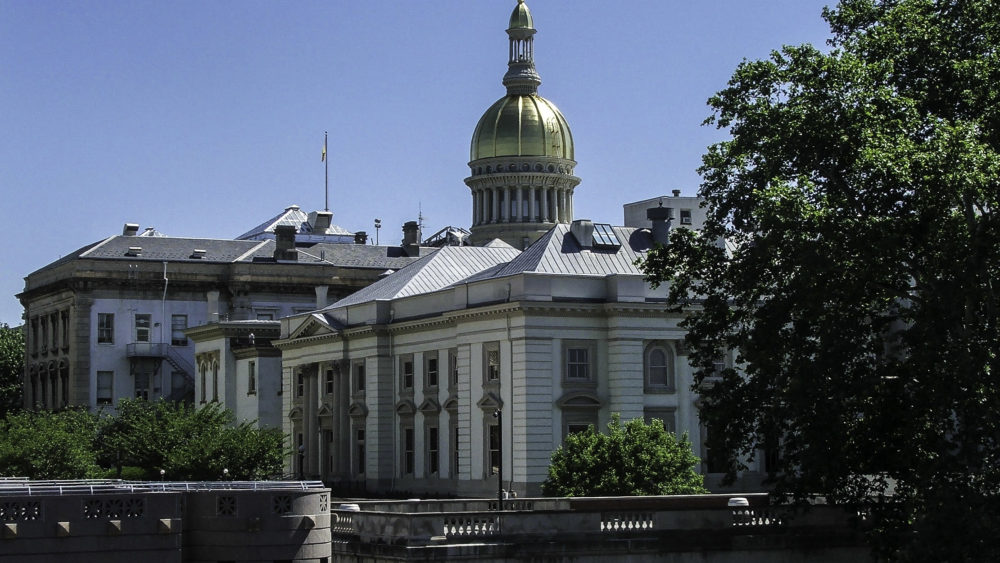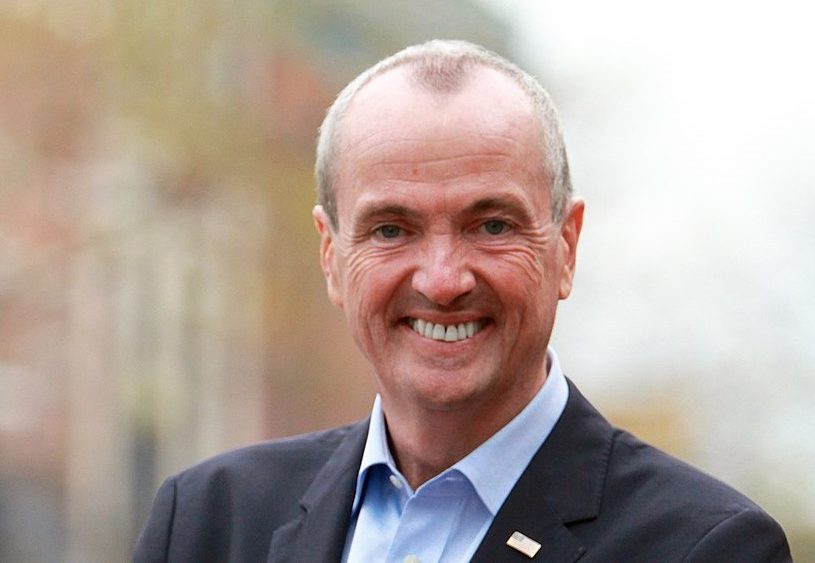March 18, 2020 •
New Jersey Federal Court Enjoins Donor Disclosure Law

New Jersey Capitol Building
On March 11, the United States District Court for the District of New Jersey permanently enjoined the state from enforcing Senate Bill 150. The bill was signed by the governor last June and was scheduled to take effect on October […]
On March 11, the United States District Court for the District of New Jersey permanently enjoined the state from enforcing Senate Bill 150.
The bill was signed by the governor last June and was scheduled to take effect on October 15, 2019.
The dark money bill required independent expenditure committees to report contributions in excess of $10,000.
Additionally, the bill required reporting of expenditures in excess of $3,000 to the Election Law Enforcement Commission.
The order does not prevent the Legislature to revisit the issue with new legislation.
May 20, 2019 •
New Jersey Dark Money Disclosure Bill Vetoed

New Jersey Gov. Phil Murphy
Gov. Phil Murphy conditionally vetoed legislation requiring dark money groups spending money to influence elections in New Jersey to disclose their large donors. Senate Bill 1500, carried over from last year’s session, requires disclosure of contributors giving more than $10,000 […]
Gov. Phil Murphy conditionally vetoed legislation requiring dark money groups spending money to influence elections in New Jersey to disclose their large donors.
Senate Bill 1500, carried over from last year’s session, requires disclosure of contributors giving more than $10,000 to 501(c)(4) groups engaging in political activities and lobbying.
In issuing the veto, Gov. Murphy said the bill contained loopholes and inconsistent disclosure standards.
He also expressed concern about the legislation not passing judicial scrutiny because of broad disclosure requirements beyond spending in elections for groups involved in issue campaigns.
The veto went on to recommend requiring companies receiving large scale tax credits from the state to disclose public contracts and political contributions to the New Jersey Election Law Enforcement Commission (ELEC).
The recommendation also sought to strike a provision limiting elected officials from managing dark-money groups.
Supporters of Senate Bill 1500, which overwhelmingly passed both houses, argued the legislation leveled the playing field by requiring all groups to disclose if trying to sway elections, legislation, or policy.
The legislature can attempt an override of the governor’s veto or work towards amending the bill based on the governor’s recommendations.
February 8, 2012 •
NJ ELEC Has the Power
Appellate Court Affirms New Jersey Election Law Enforcement Commission’s Authority
 A New Jersey state appellate court has reaffirmed the New Jersey Election Law Enforcement Commission (ELEC) has the authority to enforce the state’s campaign finance laws.
A New Jersey state appellate court has reaffirmed the New Jersey Election Law Enforcement Commission (ELEC) has the authority to enforce the state’s campaign finance laws.
In Nordstorm v. Lyon, the Appellate Division reversed a lower court’s decision not to defer to ELEC’s jurisdiction for enforcement of campaign contributions and reporting violations.
In affirming the power of ELEC, the Appellate Division held, “We reach our conclusion that ELEC has exclusive jurisdiction regarding reporting violations because of the overarching legislative goals of (1) guaranteeing transparency of campaign contributions and expenditures, (2) ensuring that disclosures of the same be managed and controlled by a single agency, and (3) implementing remedies for violations of the Reporting Act through a uniform and predictable system of sanctions.”
The case arose following a close Republican Party primary election for Morris County Freeholder between William “Hank” Lyon and Margaret Nordstrom. In its press release, ELEC Executive Director Jeff Brindle said if the lower court ruling had not been overturned, “it would have subjected candidates and committees to inconsistent application of the Campaign Reporting Act in enforcement actions.’’
State and Federal Communications, Inc. provides research and consulting services for government relations professionals on lobbying laws, procurement lobbying laws, political contribution laws in the United States and Canada. Learn more by visiting stateandfed.com.

